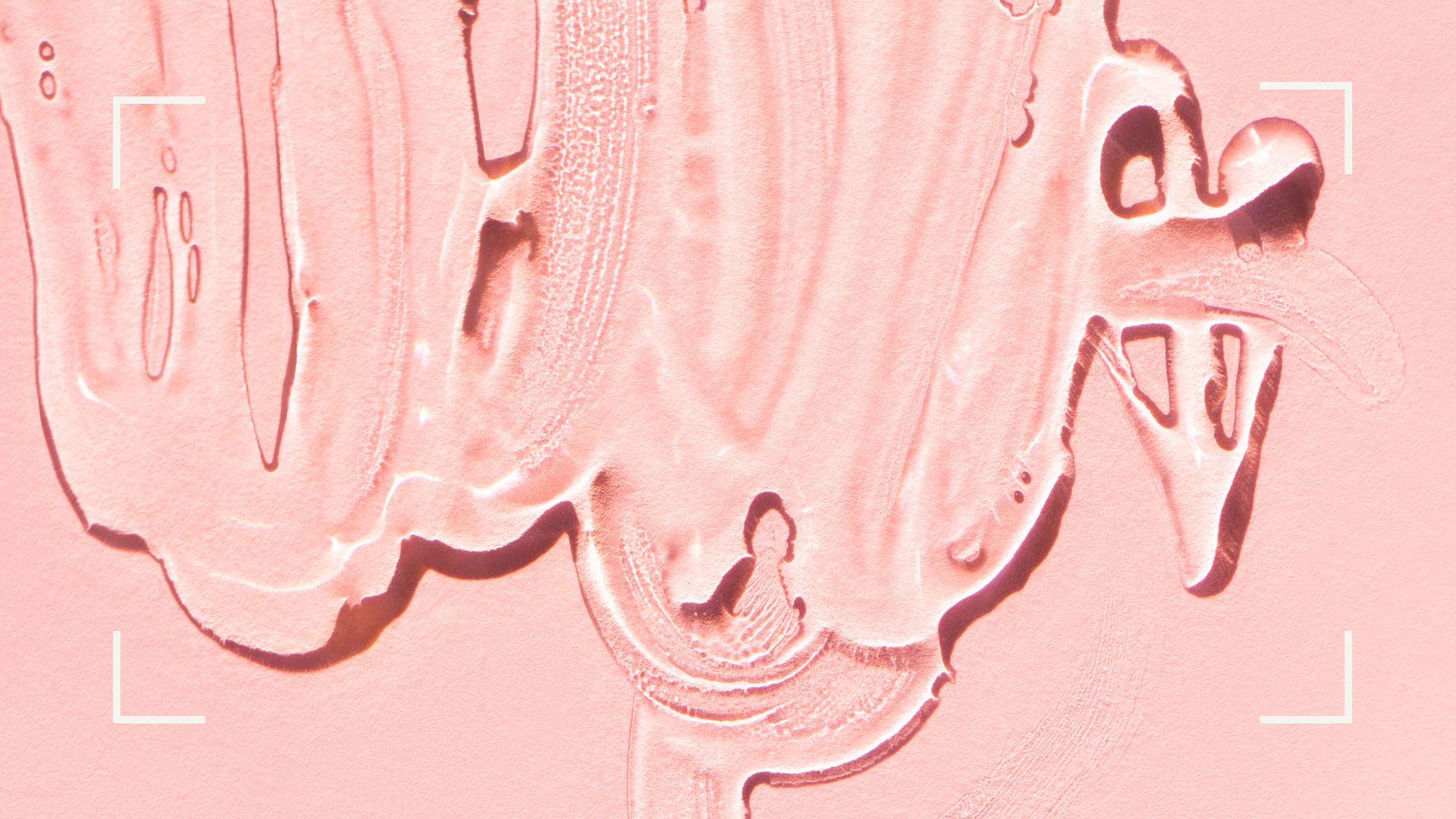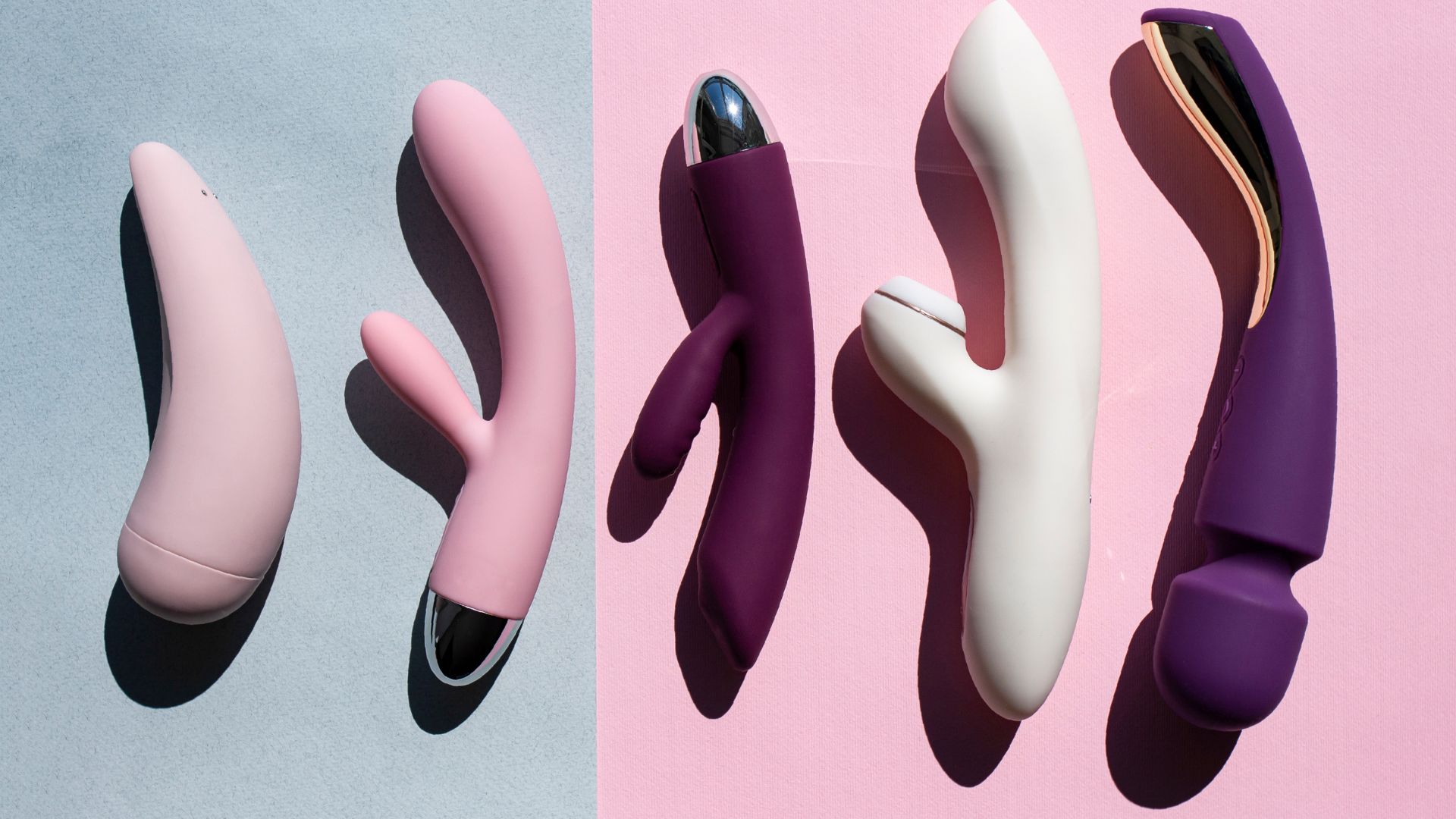What is lube and how do you use it? Plus, expert advice on choosing the right one for you
Wondering what is lube? Experts reveal what you need to know and how to use it for a better sex life


If you're wondering what is lube and how to use it, you're not alone. The liquid gel is sold everywhere from sex stores to pharmacies but not too many of us consider it essential in our sex lives - and this needs to change.
While most people associate using lube with not being able to produce enough natural lubrication, that’s not its only use. Lube can be a great way to reduce friction, make skin feel smoother, and generally make everything just a little bit easier in the bedroom. Instead of thinking of it as a substitute, we need to start thinking of it as a useful sexy tool to heighten pleasure and sexual satisfaction.
All you need to do is discover all the different types and their uses, before choosing the best lubes for you. Here at woman&home, we've got you covered. With the help of Alix Fox, sex educator, and superintendent pharmacist Carolina Goncalves, we lay out everything you need to know about lube and how to use it to have better sex in the future.
What is lube?
Lube, also known as personal lubricant, is a body-safe, liquid-like gel that helps reduce friction and discomfort during sex. While most people think of it as an aid for penetrative sex, it also makes masturbation, manual, oral, and all other types of sex easier.
Much like condoms, lube is sold in pharmacies, local convenience stores, and online, as well as in specialist sex stores. It also comes in a variety of packaging depending on the brand, from simple recyclable plastic tubes with flip-top caps to bespoke glass bottles with pipettes. It all depends on what type of lubricant you're looking for, the ingredients you do or don't want it to include, and the price you're prepared to pay.
There are also multiple different types of lubricant and each one has a different use in the bedroom:
1. Water-based lube
Water-based lubricant is the most versatile of them all. It can be used across any range of sexual activities, explains Goncalves, who also works alongside online pharmacy, Pharmica. While it doesn't last as long as silicone or oil-based lube, so you may have to reapply a couple of times, you can use water-based lube for any kind of partnered sex and with all the best sex toys since it doesn't erode the surface of them.
Sign up for the woman&home newsletter
Sign up to our free daily email for the latest royal and entertainment news, interesting opinion, expert advice on styling and beauty trends, and no-nonsense guides to the health and wellness questions you want answered.
It's also safe to use if you're having protected sex. "It's one of the best options as it's safe to use with both latex and non-latex condoms," she says. Plus, according to new research by Family Health International, it could be the best option out of all the different types of lube for this purpose. "It may decrease the risk of condom breakage and it's also pH balanced, decreasing the likelihood of contracting bacterial vaginosis."
2. Silicone-based lubricant
Silicone-based lubricant tends to be thicker and it offers a more glide for longer compared to water-based lube, making it ideal for those with sensitive skin where friction could cause pain or discomfort. "Similar to water-based lubricants, it's safe to use with both latex and non-latex condoms," the pharmacist says.
However, she adds, many silicone lubricants are not suitable for use with sex toys as these are often also made of silicone. Rather than being a match made in heaven, silicone lube wreaks havoc with the surface of your best vibrator. "It may deteriorate the surface of the silicone toys, causing abrasion in the silicone which makes them less sanitary, as it can create rifts for bacteria to grow in."
3. Oil-based lubricants
Oil-based lubricants tend to last longer than water and silicone lubricants as they don't dry up and the skin doesn't absorb them. However, Goncalves says, "It is one of the less safe lubricants for multiple reasons. First off, oil-based lubes are not recommended to be used with latex condoms as they can increase the risk of rips and tears."
Secondly, she says, research conducted by the University of California in 2013 indicated a correlation between these lubricants and an increased rate of candida, a fungal infection caused by yeast. This may be because many of the most common oil-based lubricants include coconut oil alongside a water-based gel. If you're using this formula around the vulva and vagina, it's worth noting that it may not be suitable for everyone. As coconut oil is alkaline and the vagina is naturally acidic on the pH scale, some people may find it upsets the balance, leading to uncomfortable yeast or bacterial infections.
4. Hybrid lubricant
Hybrid lubricants tend to be water-based but they also contain a small amount of silicone, meaning they last longer and offer a slipperier feeling. "These should be used in mostly the same way as silicone based lubes and they don't pose any risk of damage to latex condoms."
However, Goncalves explains that when it comes to using them on sex toys, there's a key difference between these two. "Hybrid lubricants tend to have a higher water content to avoid molecular friction," she says, meaning they should be fine to use on any of your silicone sex toys. "But it's worthwhile to test hybrid lubricants on a small selection of your toys to test if they take on a gummy, sticky quality. If this is the case, avoid using these lubricants on your toy."
What is lube used for?
Lube's main role is exactly what it says on the tin: to lubricate. You can also use it for penetrative sex, manual sex using your hands or a sex toy, masturbation, and oral sex, explains Goncalves. "It will help to reduce the likelihood of associated complications. Without lubrication, any friction that arises during sexual activities can create small tears and cuts in the skin, as well as general irritation which can lead to infections."
Do you always need to use lube when having sex or using toys?
No, you don't always have to use lube during sex - but it's always useful to have on hand since natural lubrication depends on hormone levels ultimately. "The hormone estrogen is responsible for ensuring that the walls of the vagina stay naturally moisturized with a clear lubricating fluid, and stay feeling elastic and plump," explains sex educator Alix Fox, who is also the spokesperson for Durex. "When estrogen levels fall each month at certain points in the menstrual cycle or permanently following menopause, it’s totally normal to feel drier and dehydrated downstairs."
As well as the onset of perimenopause symptoms, factors like stress and the impact of some medications can also play a role in natural lubrication. Plus, three in ten women of all ages suffer from vaginal dryness, a number that rises to five in 10 postmenopausal women, according to research by Pheophania Clinical Hospital.
Many people prefer including some additional lubrication anyway during sex to make it more pleasurable, says Goncalves. "There’s no right or wrong answer. However, there is no harm in using lubricants from the initial outset and it doesn’t just have to be applied quickly during penetrative sex.

How to use lube
Squeeze a good amount of lube into the palm of your hand to start with - it’s always better to have too much than not enough to start with. Then, use your fingertips to apply the gel onto the areas of your partner that you want to touch and onto areas of your body where you want to be touched. This may include the vulva, vagina, anus, penis, any sex toy or vibrator, along with any other areas you enjoy.
How you use lube, how much of it you use, and when you use it is all down to you at the end of the day though. Some people choose to slather it everywhere for the ultimate glide, whereas others opt to use it sparingly and reapply when needed.
Alix Fox does have some advice for those new to lube, however, if you're looking for specifics:
Using lube for foreplay
Start by using your lube to touch your partner's erogenous zones, Fox advises. "Slick your hand with lubricant to instantly upgrade how it feels when you stroke your partner’s sensitive spots. Try drizzling lube into your palm while looking at them knowingly to increase their anticipation with a teasing visual. Lubed-up, glossy skin glistening in candlelight is a powerfully erotic vision, too," she says.
For anal sex
This is one case where you may need to be relatively specific about where you put the lube, especially if you're new to this type of sex. "Lubricant should be front of mind if you’re intending to explore the back passage as, unlike the vagina, the anus can’t produce its own natural moisture," explains Fox. "You might also want to opt for a thicker formula to help provide a cushioned, longer-lasting glide."
Warming up slowly will be the way forward to start with, she says. "No matter whose rear it is, and no matter whether you’re enjoying playing with a plug, a probe, a prostate toy, or penetration by another person, warming up slowly and being generous with the lube can help avoid injuries like fissures or tears, and it sets you up for a top quality experience."
However, while it may be tempting to try lubes with numbing and desensitizing agents, avoid these. "They temporarily reduce your awareness of pain and they could lead people to engage in more aggressive sex than their body can handle, only realizing afterward that they’ve hurt themselves."
With sex toys
Using lube with sex toys, whether it's one of the best wand vibrators or your favorite dildo, is always a good idea. However, as we've mentioned, it's important to pick the right lubricant for the right toy.
"Some silicone-based lubricants don’t react well with certain silicone, soft, or ‘real skin effect’ toys, and can cause them to ‘rot’, peel, or turn sticky," says Fox. "I find that keeping it plain again with a simple water-based formula is your best bet to keep toys in their best condition, and clean and dry them carefully after every use."
In the shower
Learning how to have sex in the shower is tricky enough logistically, so be sure to bring a bottle of lube into the bathroom with you to help you get the angle you need.
"If you’re planning to get busy in the bathroom, silicone-based lubricants could be your new best friend," says Fox. "It can make surfaces slippery too though, so take care that you’re only swept off your feet in the romantic sense."
These are just a couple of tips to get you through using lube if you're a newcomer to the gel - there are so many ways you can use lube both in and out of the bedroom. These are Fox's other tips for making the most of your favorite lube:
- Use it to insert a menstrual cup: "You might find that a dab of water-based lube can make inserting a menstrual cup during your period much comfier," she says.
- Take it with you to pap smears: "Did you know you can bring your own lubricant with you to cervical smear tests? Along with tips like asking for a smaller speculum and requesting that you be allowed to insert it yourself, bringing your own water-based lube that you know feels fine for your body can make cervical screening a less anxious procedure for those who find this important health check uncomfortable, triggering or nerve-wracking."
- Avoid silicone and oil-based lube on your silk sheets: "If you’re planning to be seduced upon silken sheets, it’s worth bearing in mind that water-based lube formulas tend to be easier to wash out of fabrics than oils and silicones," she says.

Grace Walsh is woman&home's Health Channel Editor, working across the areas of fitness, nutrition, sleep, mental health, relationships, and sex. She is also a qualified fitness instructor. In 2025, she will be taking on her third marathon in Brighton, completing her first ultra marathon, and qualifying as a certified personal trainer and nutrition coach.
A digital journalist with over seven years experience as a writer and editor for UK publications, Grace has covered (almost) everything in the world of health and wellbeing with bylines in Cosmopolitan, Red, The i Paper, GoodtoKnow, and more.
-
 Kate Middleton declares baker boy hats are back for 2025 with Love, Actually-esque outdoor outfit
Kate Middleton declares baker boy hats are back for 2025 with Love, Actually-esque outdoor outfitThe Princess of Wales’s signature style is all about timelessness but that doesn’t mean that she never gets on board with trends.
By Emma Shacklock
-
 We're in awe of Sienna Miller's easy-going and 'piece-y' hairstyle and how perfect it is for spring
We're in awe of Sienna Miller's easy-going and 'piece-y' hairstyle and how perfect it is for springThis laid-back hairstyle is - quite literally - making waves this season
By Naomi Jamieson